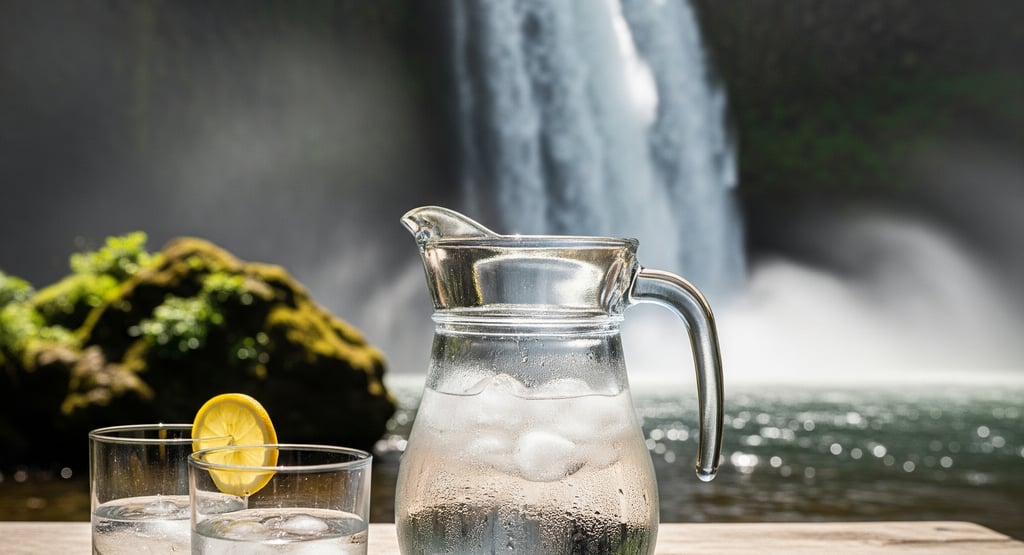

Dehydration is a significant health concern for seniors, often overlooked despite its serious consequences. As we age, our bodies undergo various changes that increase the risk of dehydration, making it crucial for older adults and their caregivers to understand the dangers and implement effective hydration strategies.
One of the primary reasons seniors are more susceptible to dehydration is a diminished thirst sensation. The body's natural urge to drink tends to lessen with age, meaning an older adult might not feel thirsty even when their body is already experiencing a fluid deficit. This blunted thirst response, combined with a potential fear of incontinence leading to reduced fluid intake, creates a dangerous cycle.
Another contributing factor is a decrease in kidney function. The kidneys play a vital role in regulating fluid balance by concentrating urine and reabsorbing water. With age, kidney efficiency can decline, leading to increased water loss through urination. Similarly, certain medications commonly prescribed to seniors, such as diuretics for high blood pressure or heart conditions, can also increase urine output and contribute to dehydration. Chronic health conditions like diabetes, fever, or diarrhea also elevate the risk of fluid loss.
The consequences of dehydration in seniors can be severe and far-reaching. Even mild dehydration can manifest as fatigue, dizziness, headaches, and confusion, increasing the risk of falls, a major cause of injury in older adults. For instance, a dehydrated senior might feel lightheaded when standing up, leading to a loss of balance.
More severe dehydration can lead to a cascade of serious health problems. It can exacerbate existing kidney conditions, leading to acute kidney injury or even failure. It can also cause electrolyte imbalances, disrupting the normal functioning of nerves and muscles, potentially leading to seizures or cardiac arrhythmias. Cognitive function can be significantly impaired, making it difficult for seniors to perform daily tasks or even recognize their own symptoms. In extreme cases, dehydration can result in heatstroke, a life-threatening condition, especially for those with compromised thermoregulation. The body's ability to regulate its temperature is often less efficient in older adults, making them more vulnerable to heat-related illnesses when dehydrated.
Furthermore, dehydration can lead to constipation, a common and uncomfortable issue for many seniors. It can also thicken the blood, increasing the risk of blood clots and cardiovascular events like strokes. The weakened immune system often seen in older adults can be further compromised by dehydration, making them more susceptible to infections. Hospitalization for seemingly unrelated issues can often be linked back to underlying dehydration, highlighting its pervasive impact on senior health.
Given these serious risks, proactive strategies for staying hydrated are essential. The good news is that many effective tips can help seniors maintain adequate fluid levels:
Make Water Accessible and Appealing: Keep water within easy reach throughout the day. Offer water with meals and snacks. If plain water isn't appealing, try adding slices of fruit like lemon, lime, or cucumber for flavor.
Establish a Hydration Schedule: Encourage regular sips throughout the day, even if thirst isn't present. For example, aim for a small glass of water every hour or two. Setting alarms can be helpful.
Incorporate Hydrating Foods: Many fruits and vegetables have high water content and can contribute significantly to daily fluid intake. Examples include watermelon, strawberries, oranges, cucumbers, celery, and lettuce. Soups and broths are also excellent choices.
Offer a Variety of Beverages: While water is paramount, other fluids can contribute. These include decaffeinated tea, diluted fruit juices, milk, and clear broths. However, it's important to limit sugary drinks and excessive caffeine, which can have a diuretic effect.
Monitor Urine Color: A simple and effective indicator of hydration status is urine color. Pale yellow urine generally indicates good hydration, while dark yellow or amber urine suggests dehydration.
Address Medication Side Effects: If medications are causing increased urination, discuss strategies with a healthcare provider. It might be possible to adjust dosages or timing to minimize fluid loss while ensuring the medication remains effective.
Consider Oral Rehydration Solutions: For seniors who are experiencing vomiting, diarrhea, or significant fluid loss due to illness, oral rehydration solutions (ORS) can be beneficial. These solutions contain the right balance of electrolytes to help the body absorb fluids more effectively.
Be Mindful of Activity Levels and Environment: During periods of increased physical activity or in hot, humid weather, fluid needs increase significantly. Encourage more frequent fluid intake during these times.
Educate and Involve Caregivers: Caregivers play a crucial role in ensuring seniors stay hydrated. They should be aware of the signs of dehydration and actively encourage fluid intake.
In conclusion, dehydration is a silent but serious threat to the health and well-being of seniors. By understanding the unique vulnerabilities of older adults and implementing consistent, proactive hydration strategies, we can significantly reduce the risks associated with fluid imbalance and promote a healthier, more vibrant senior population. Staying hydrated is not just about quenching thirst; it's a fundamental pillar of senior health.
